Making a Difference


Childcare centers
as a platform for improving child nutrition in Malawi

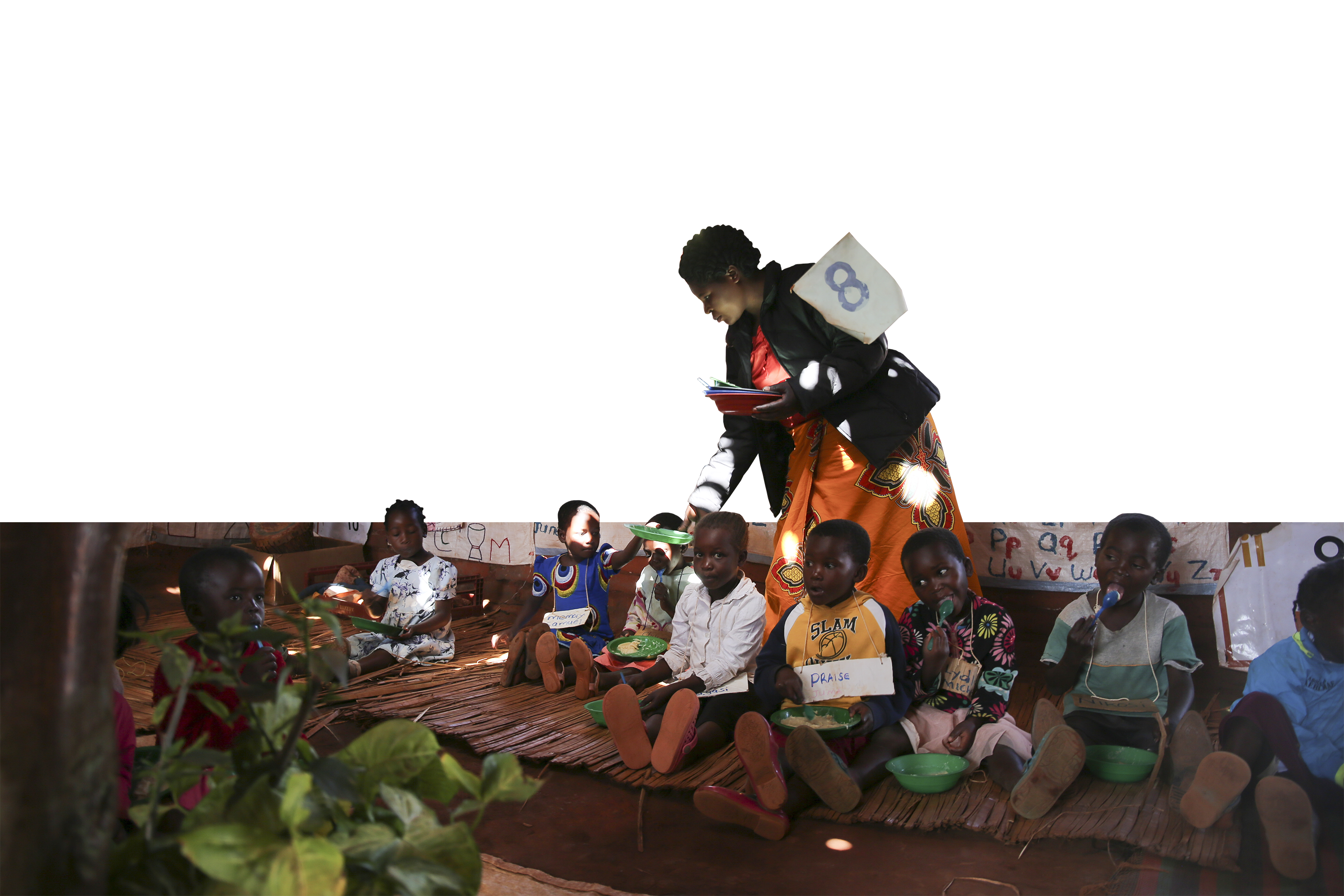
Implemented in 60 community-based childcare centers across Malawi
Provided farming and nutrition training, micro-lending services, and seeds to over 550 families
Led to national scale-up that aims to reach over 700,000 beneficiaries across Malawi
CGIAR IMPACT AREA:
Nutrition, Health & Food Security



Rhoda is part of a parent group in southern Malawi that manages the local community-based childcare center (CBCC). Her daughter Lela attends the preschool center where she participates in early childhood education activities and receives a daily meal that supports her nutrition at this key stage of her development. While CBCCs have been active in the Zomba district of Malawi since 2008, agriculture and nutrition training sessions were introduced in 2015 and 2016, respectively, by the Government of Malawi, Save the Children, and the University of Malawi. In December 2015, Rhoda and the other parents received training to improve farming practices and began planting soon after the training, which helped them to provide a more consistent supply of healthy foods to the center for children’s meals on a voluntary basis. In February 2016, parents also attended classes on childcare and nutrition, where they learned about nutritious foods and how to prepare healthy recipes for their children. Thanks to these services, Lela ate healthier meals at preschool and at home, which improved her diet along with the nutritional status of her younger siblings.
IFPRI’s research on this program revealed its significant impact on communities as well as the potential benefits of such community-based initiatives.
I’ve noticed changes in Lela’s health, and how she is with her friends. I am very happy because my child has nutritious food. Her health has improved.
– Rhoda, Lela’s mother


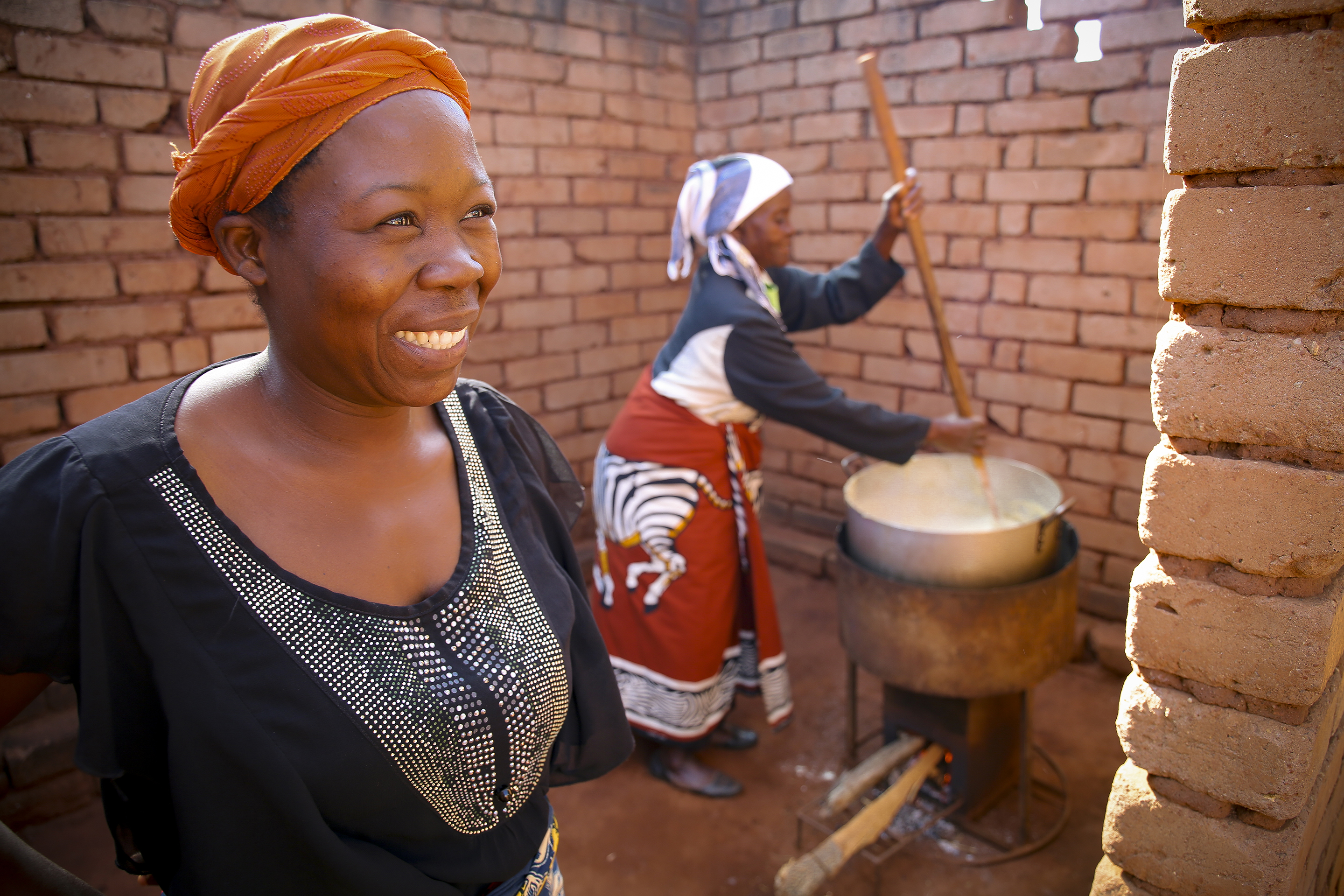
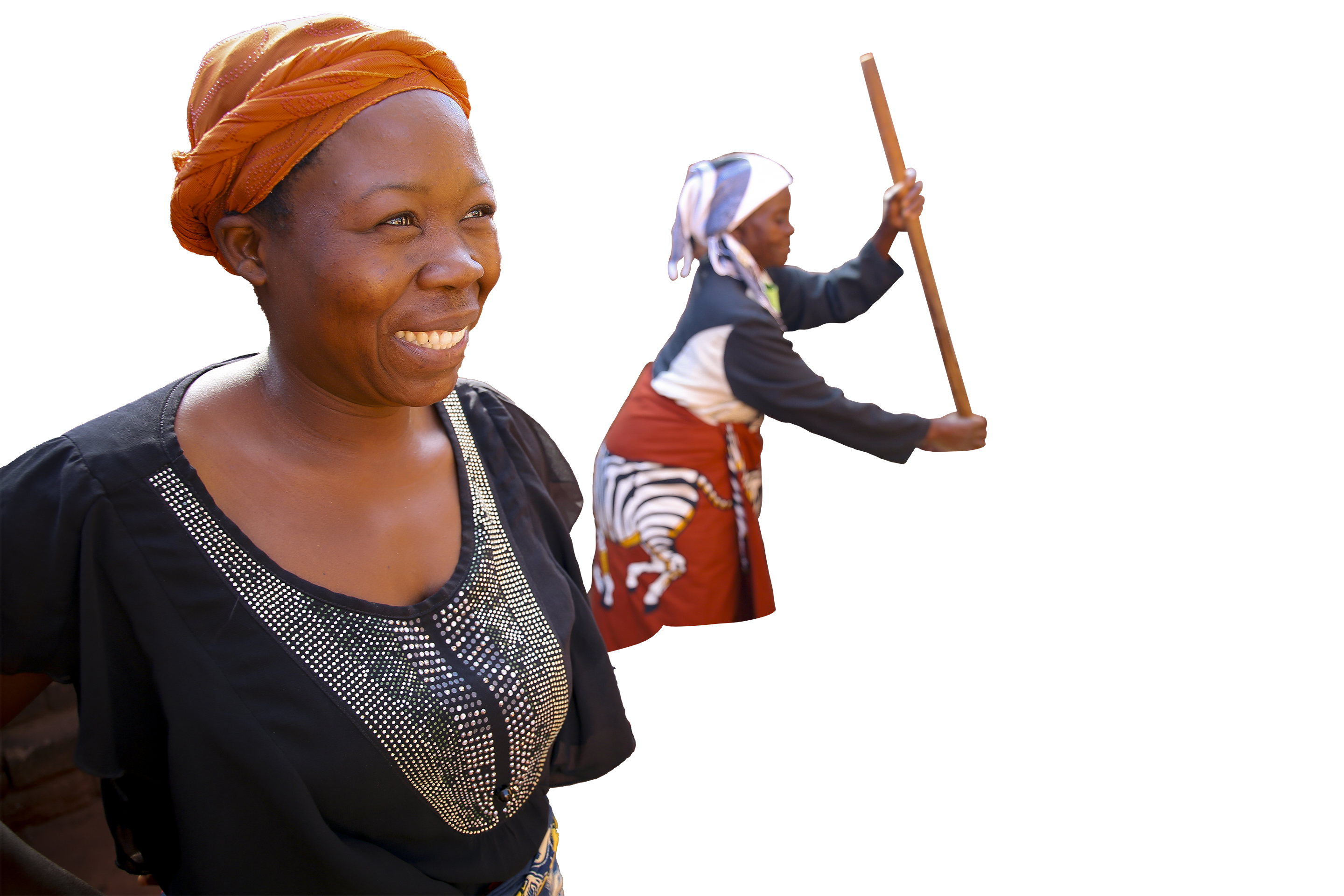
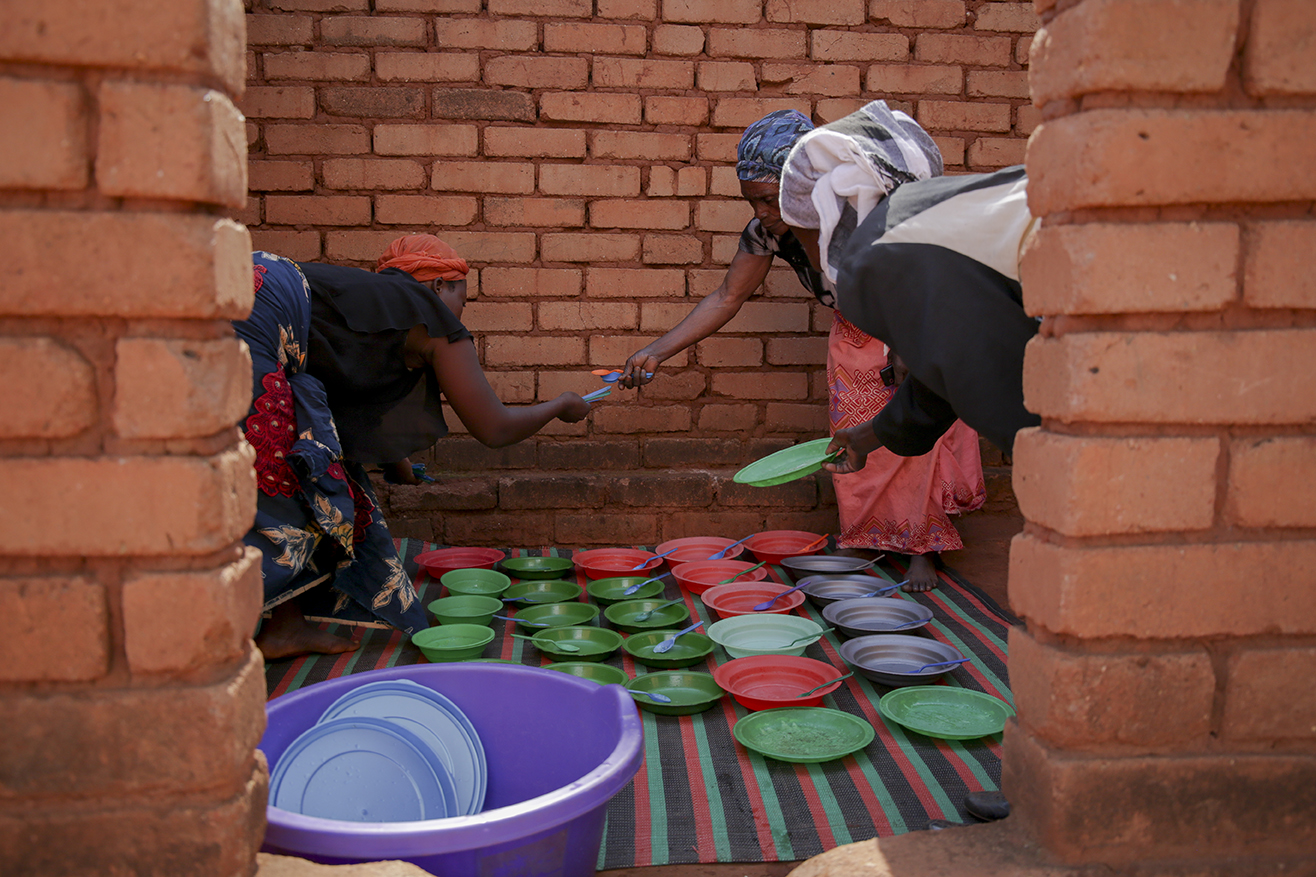
Program Overview
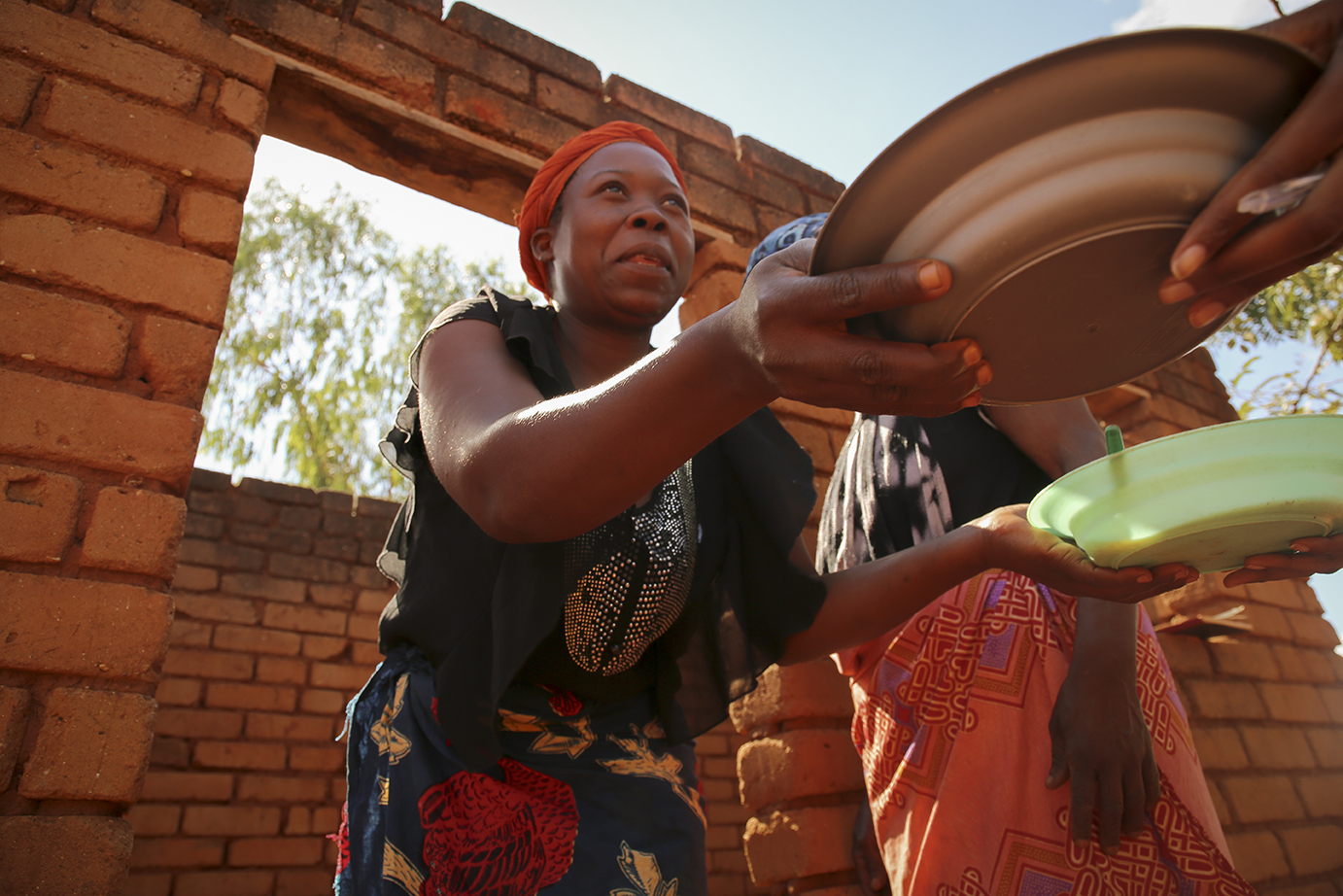
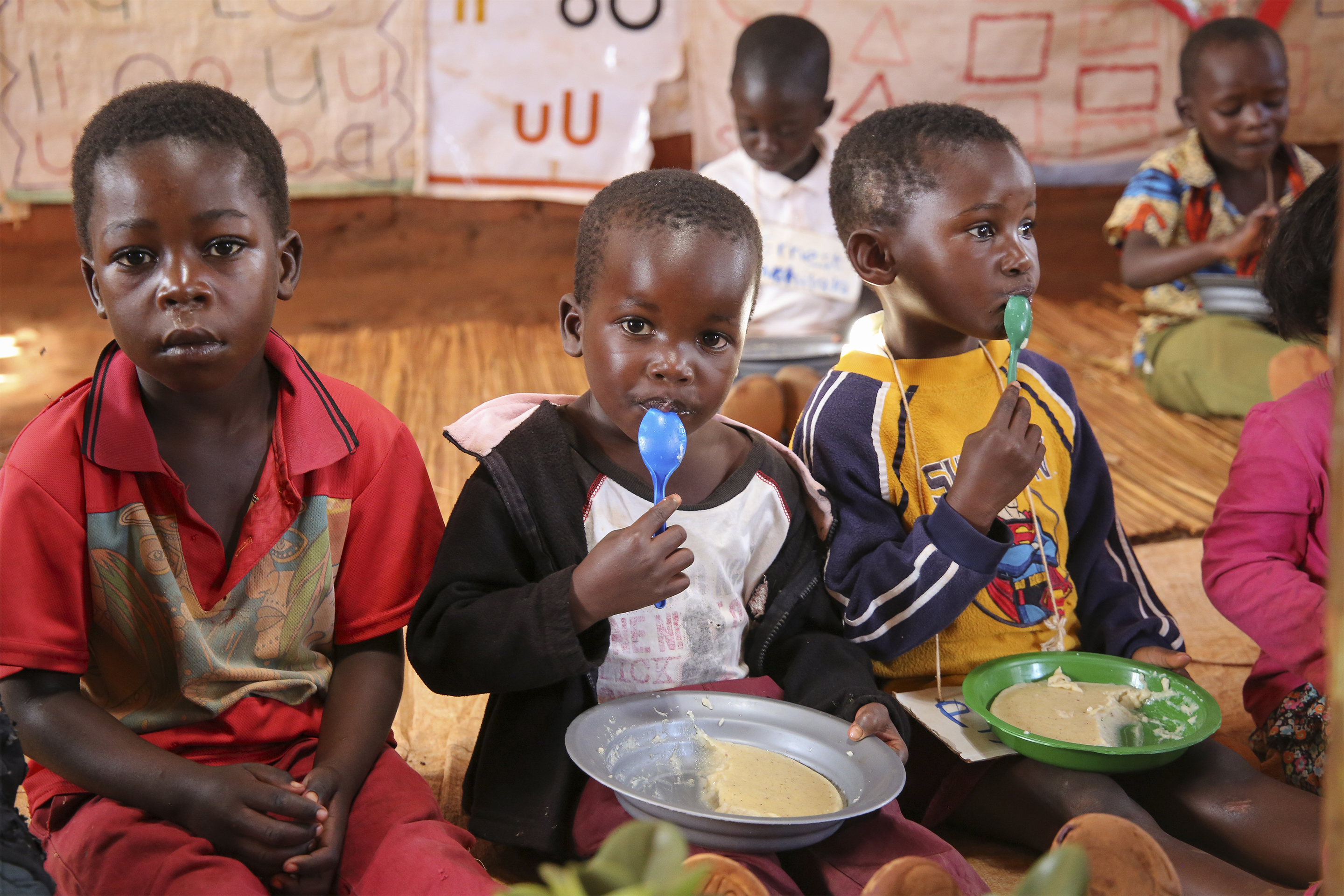
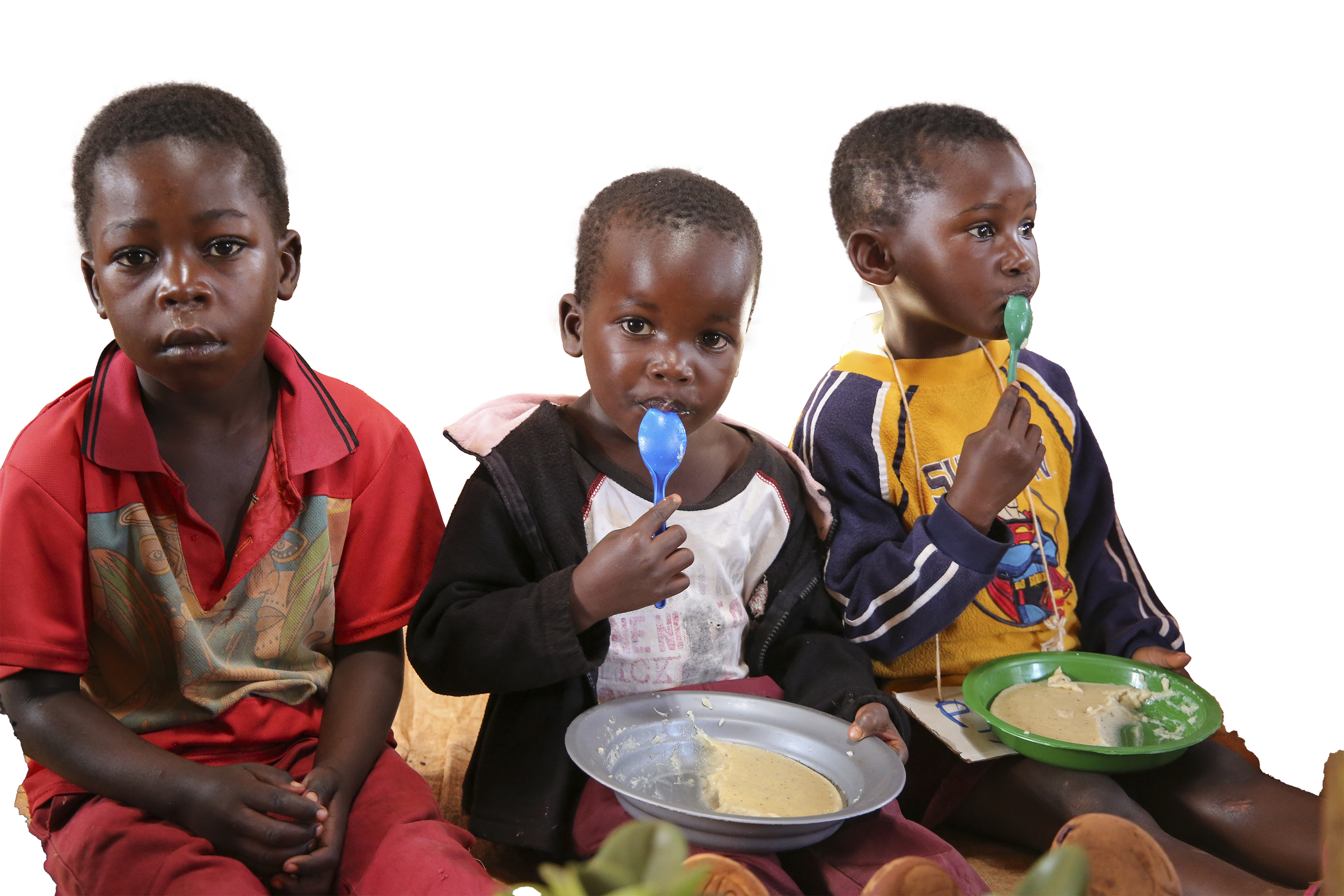
CBCCs are a key platform to roll out Malawi’s National Early Childhood Development (ECD) policy. At these centers, families and community members come together to provide childcare services and meals for young children. Despite support from the national ECD program, many centers experience frequent food shortages. The lack of meals can lead to child absence and sometimes cause centers to close. The Nutrition Embedded Evaluation Program (NEEP) intervention was developed to use CBCCs as a platform to promote child health and nutrition. The approach integrated local knowledge and guidance from experts at the University of Malawi and Save the Children to provide trainings on nutrition and agricultural production, linking with micro-lending program, and distributing seeds of nutritious foods to households.
At the start of the NEEP program, IFPRI and Save the Children decided to implement a rigorous impact evaluation (NEEP-IE) to see whether this approach was effective and could be replicated or scaled up across Malawi.
Impacts and lessons for the future
The randomized evaluation of the program showed positive outcomes. As a result of the intervention, participating families came together to provide more frequent and nutritious meals for preschoolers in the childcare centers. The study found that NEEP centers were open more frequently in the seven days preceding the end line survey than those that did not participate. In addition, program-supported centers were 11 percentage points more likely to provide meals. Preschool children in the program had greater increases in dietary diversity and nutrient intakes than those in the control group.
The younger siblings of participating preschoolers experienced better growth than children in the control group, mean height-for-age z-scores were greater in younger siblings in the intervention group compared to those in the control group (+0.44 SDs), resulting in a difference in the prevalence of stunting of 17 percentage points across study groups (Gelli et al., 2018). This suggests that the intervention had a protective effect in spillover benefits beyond the childcare centers to younger siblings by sparking behavior change in households. Families began growing and consuming a greater diversity of healthy crops, including orange-fleshed sweet potatoes, groundnuts, pigeon peas, and soybeans. Families also made their own contributions to the program in labor, cash or in-kind donations of food—making up a significant portion of the costs of the program (Margolies et al 2021).Further studies, including an economic evaluation, found that the program had a positive return on investment (Gelli et al 2022).
Families began growing and consuming a greater diversity of healthy crops including orange-fleshed sweet potatoes, groundnuts, pigeon peas, and soybeans.
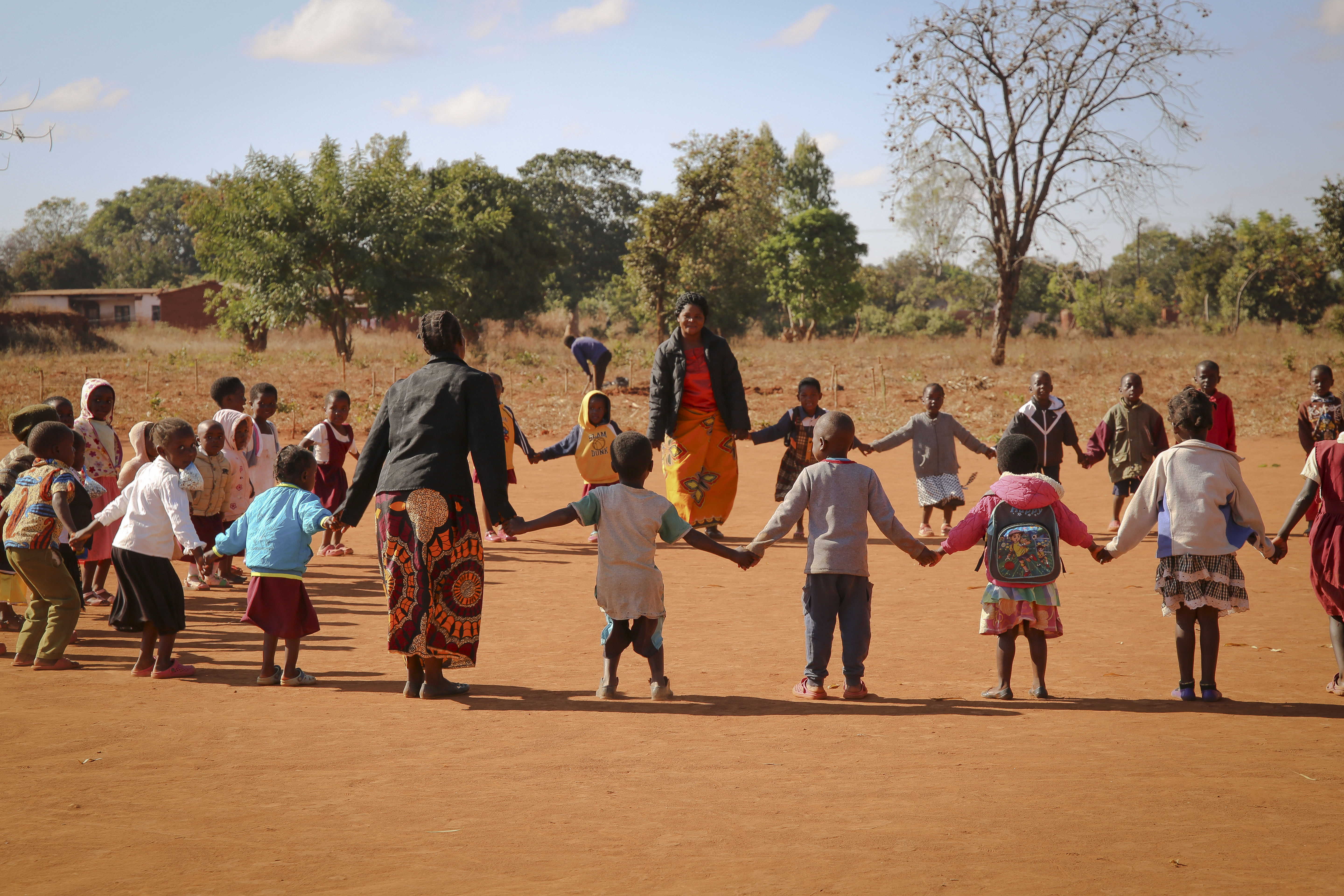
NEEP also provided a valuable opportunity to gain insight into the experiences women have with nutrition and agriculture-based interventions. Such projects may encourage women’s participation in increasing the diversity of agricultural production and in improving diets for their families, but little is known about how they may affect women’s time use and well-being. A recent study showed that during the lean season, women in the program spent more time on caregiving activities compared to women who were not in the program. The period under study occurred as the program was scaling up and during a time when women were busy with other activities such as contract labor. This additional time invested dissipated by the end of the program. Qualitative findings revealed that these women did not feel overly burdened by the additional activities and felt the benefits of the program were well worth the added effort because it supported their children’s development.
These promising results endured. In 2017, IFPRI conducted a follow-up study to gauge the intervention’s sustainability. Researchers found that parents continued to use improved parenting and farming practices introduced by the program. This suggests that communities bought into the program’s agriculture, nutrition, and early childhood lessons and practices. Remarkably, the younger siblings in communities that had received the intervention had higher child development scores than those in the control group.
One of the major lessons from this experience is that communities have significant potential to come together to improve their health and well-being. Prior to the project, many families already managed childcare centers and worked to provide a healthy environment for their children. This intervention merely served to catalyze action and maximize existing potential within communities. These findings also reflect the importance of localized strategies that encourage ownership and buy-in.
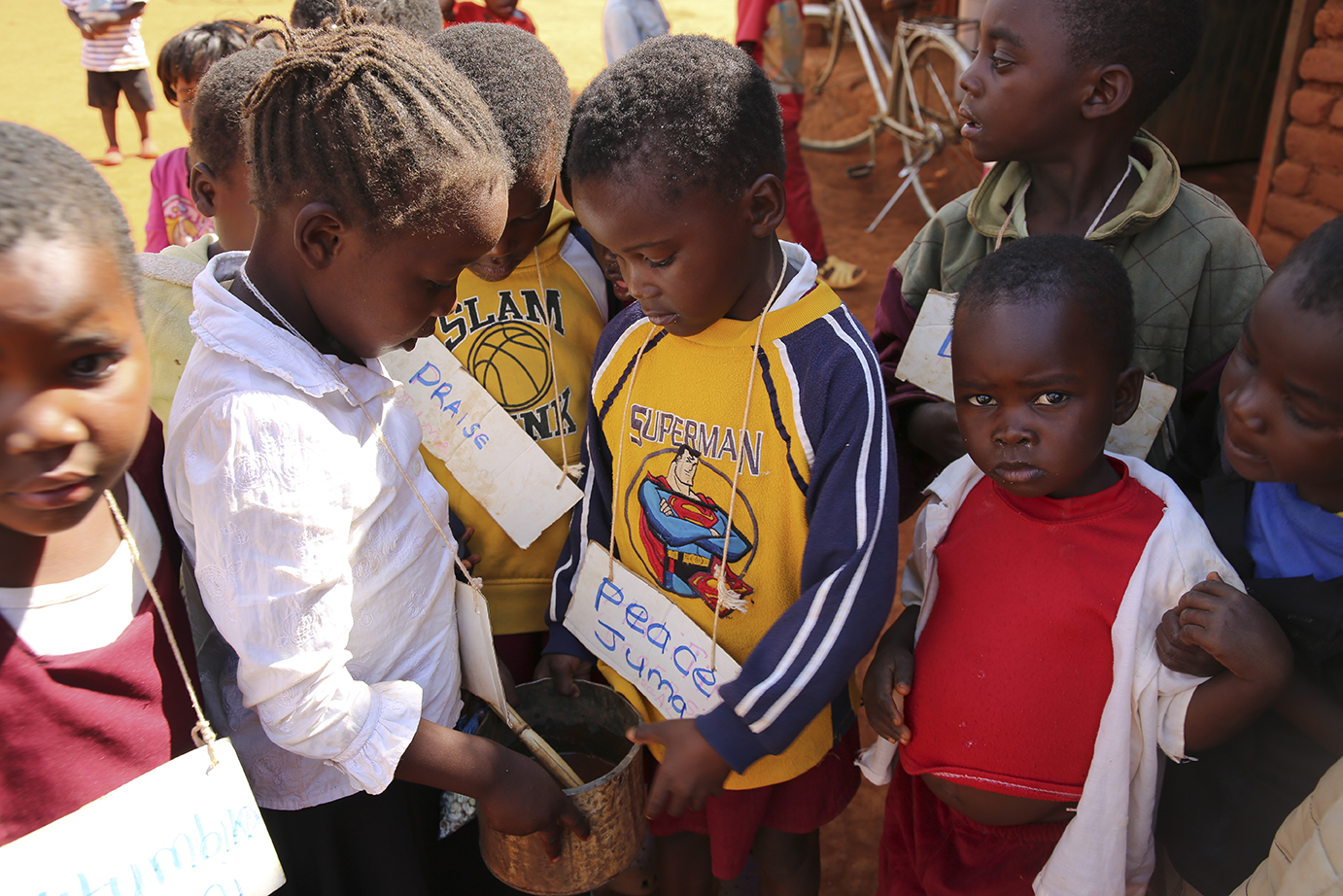
Researchers found that parents continued to use improved parenting and farming practices introduced by the program.
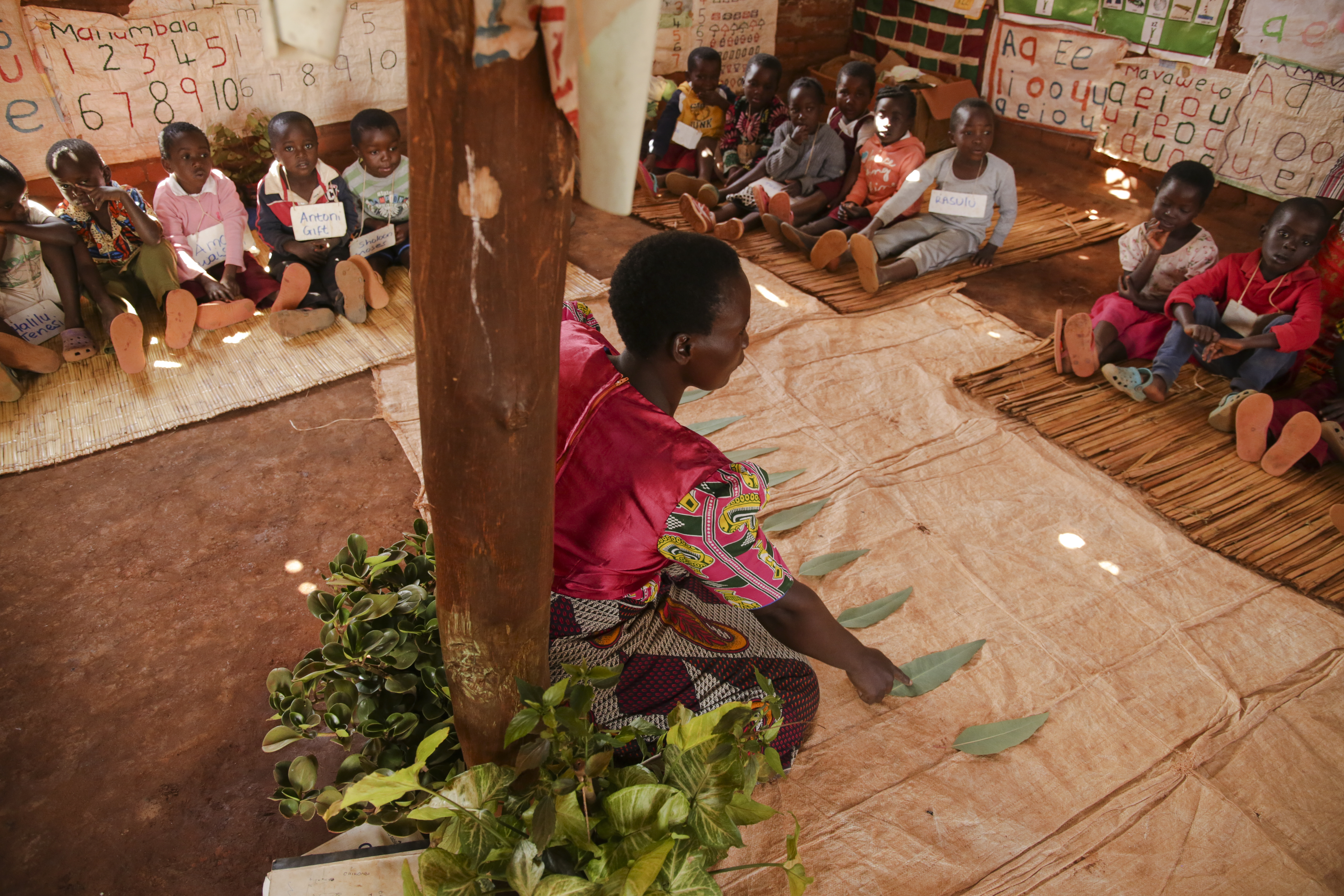
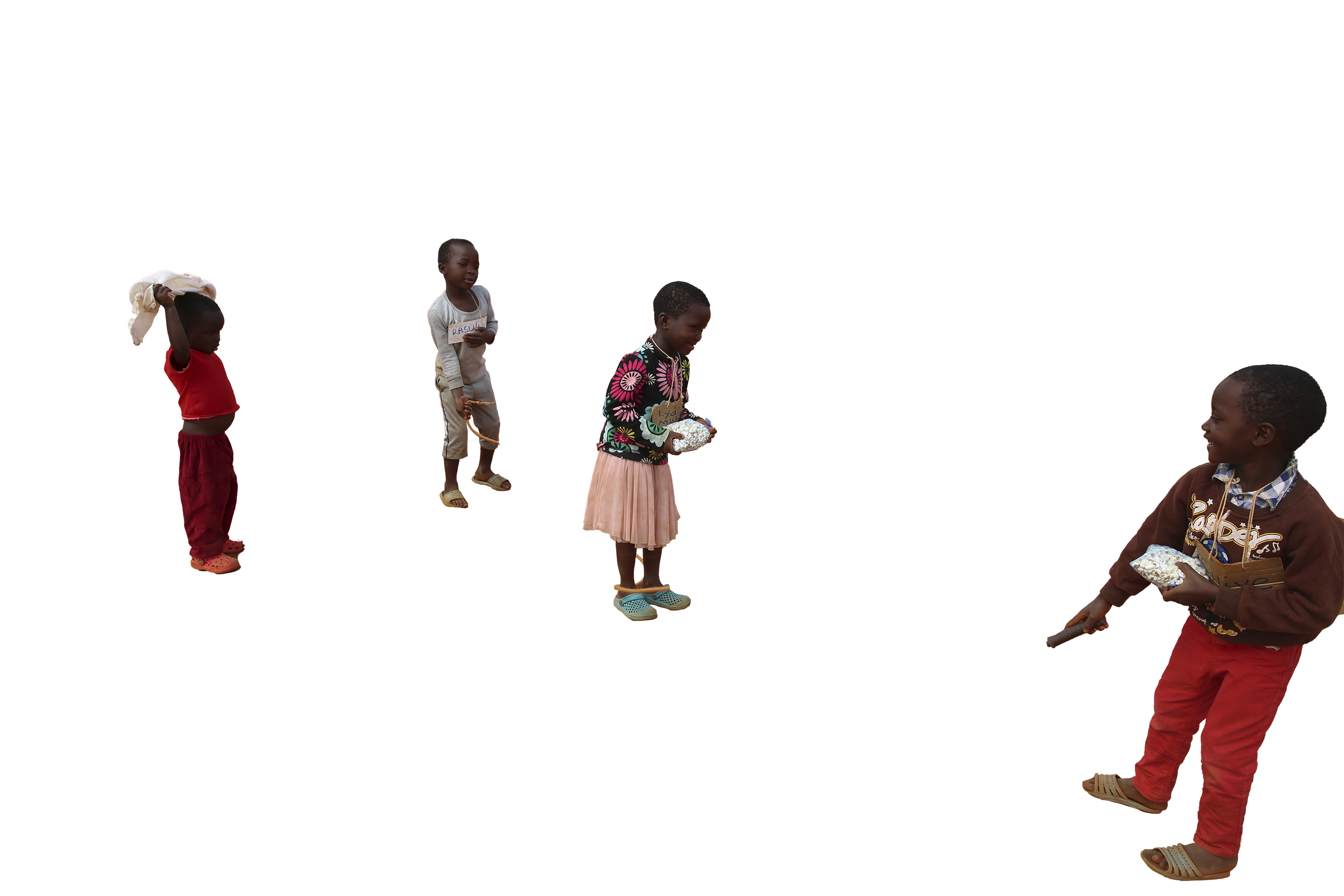
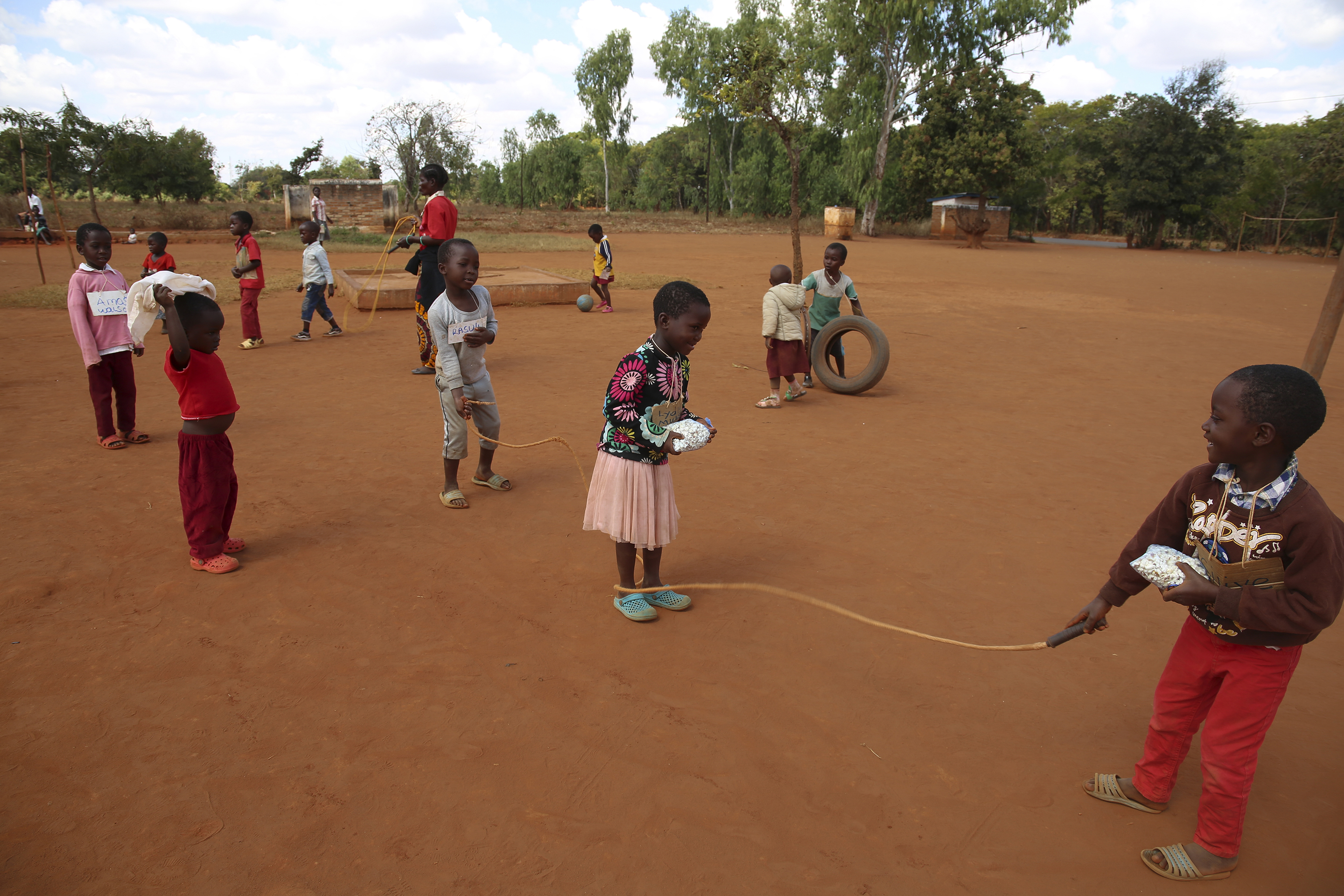
Project Legacy
The IFPRI research findings highlighted the value of the NEEP program. As a result, in 2019, the Government of Malawi and World Bank decided to scale up the intervention with a $60 million investment. The Investing in Early Years Project provides nutrition, early learning, health, and capacity-strengthening interventions through CBCCs to reach over 700,000 beneficiaries across Malawi.
Moving Forward
The NEEP program used CBCCs as a platform to successfully introduce a set of simple and cost-effective interventions to improve child nutrition. The results show that preschool centers like these can play a critical role in ensuring community buy-in and in facilitating change.
To explore the potential for greater impact, Save the Children, Give Directly and IFPRI launched the Maziko project in 2022. Maziko leverages the Government of Malawi and World Bank-facilitated Investing in Early Years project to further examine strategies that can improve the health and nutrition of pregnant women and mothers of young children. The study looks at the impacts of cash transfers of different sizes, and newly developed parenting, nutrition, and farming trainings, on women’s nutrient intake and the growth of their young children. By varying these strategies across communities, researchers will gain a better understanding of the behavior change mechanisms and inputs needed to improve nutrition, early childhood practices, agricultural production, and household income.
Community-based innovations such as the NEEP program will be critical to promoting inclusion and resilience in food systems. By starting at the local level, these programs can help ensure that the voices of rural families are at the center of work that strives to improve their nutrition. Providing knowledge and skills to communities through local institutions like childcare centers also builds their capacities to weather food system shocks such as droughts or economic disruptions.
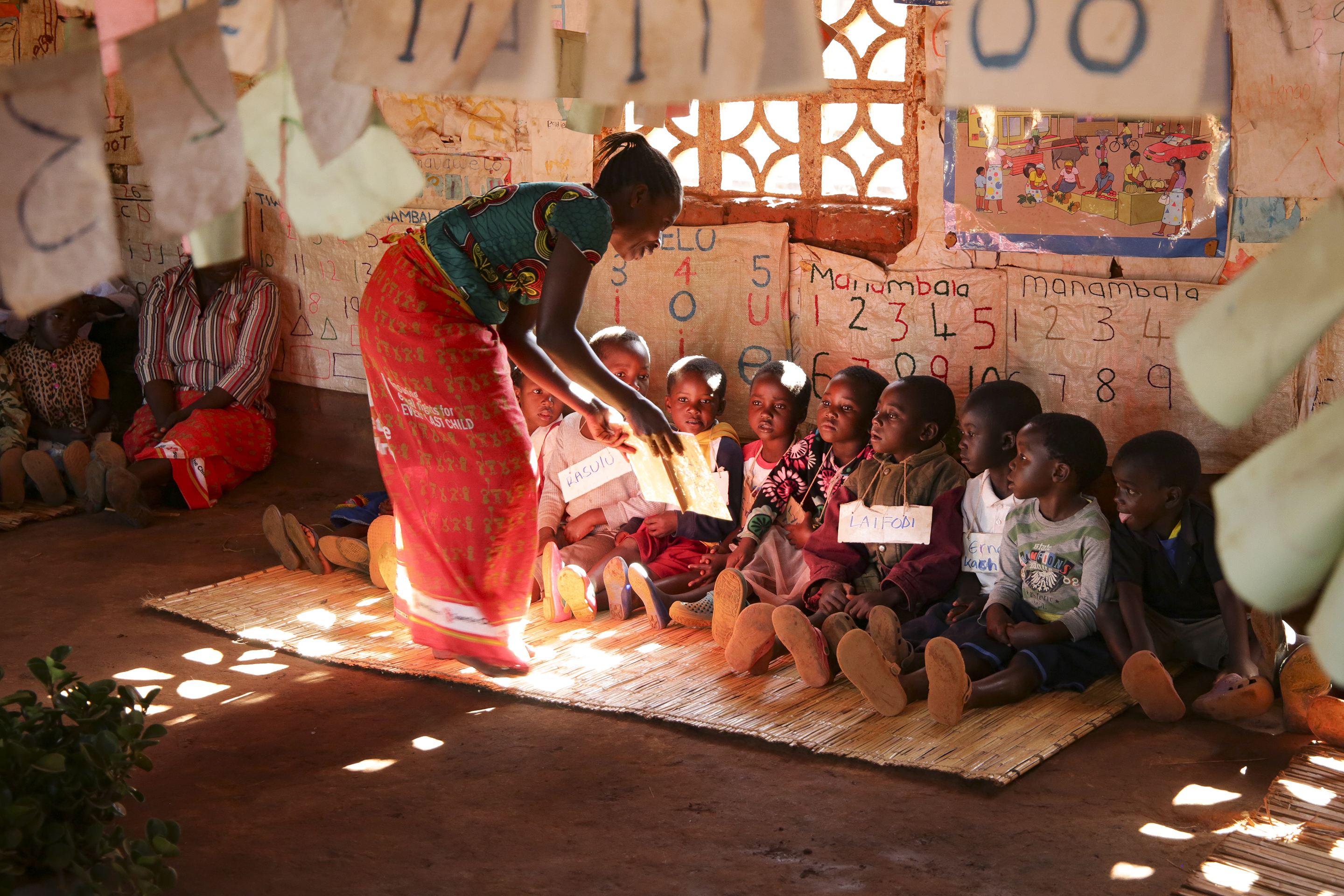










Back to top

Above: Women preparing porridge to be served to students.
Below: The women prepare the bowls for serving.
CGIAR IMPACT AREA:











This blog post is part of a special monthly series entitled “Making a Difference,” documenting the impact of IFPRI's projects and initiatives. These stories reflect the wide breadth of the Institute's research, communications, and capacity-strengthening activities around the world, in fulfillment of its mission. The blog series has been peer-reviewed by IFPRI's Impact Committee members.
This review of research outcomes was written by Aulo Gelli, Senior Research Fellow; Amy Margolies, Research Fellow, both with IFPRI’s Poverty, Health, and Nutrition Unit; and Brian McNamara, Program Coordinator, Markets, Trade, and Institutions Unit. The CEROS site was designed by Lee Dixon, Senior Graphic Designer, Communications and Public Affairs Unit.
This review of research outcomes was written by Aulo Gelli, Senior Research Fellow; Amy Margolies, Research Fellow, both with IFPRI’s Poverty, Health, and Nutrition Unit; and Brian McNamara, Program Coordinator, Markets, Trade, and Institutions Unit. The CEROS site was designed by Lee Dixon, Senior Graphic Designer, Communications and Public Affairs Unit.
About IFPRI The International Food Policy Research Institute (IFPRI), a research center of CGIAR, provides research-based policy solutions to sustainably reduce poverty and end hunger and malnutrition in low- and middle-income countries. IFPRI was established in 1975 to identify and analyze alternative national and international strategies and policies for meeting the food needs of the developing world, with particular emphasis on low-income countries and on the poorer groups in those countries. Partnerships, communications, capacity strengthening, and data and knowledge management are essential components for translating IFPRI’s research to action and impact. The Institute’s regional and country programs play a critical role in responding to demand for food policy research and in delivering holistic support to country-led development. IFPRI collaborates with partners around the world.



IFPRI is reaching the lives of millions of people through its contribution to policies and programs that reduce poverty, hunger, and malnutrition. This blog series highlights how IFPRI’s research is contributing to policy decisions and investments made by governments, development organizations, and other partners, and making a difference for food and nutrition security in developing countries around the world.
View More blog posts






IFPRI is reaching the lives of millions of people through its contribution to policies and programs that reduce poverty, hunger, and malnutrition. This blog series highlights how IFPRI’s research is contributing to policy decisions and investments made by governments, development organizations, and other partners, and making a difference for food and nutrition security in developing countries around the world.
View More blog posts












